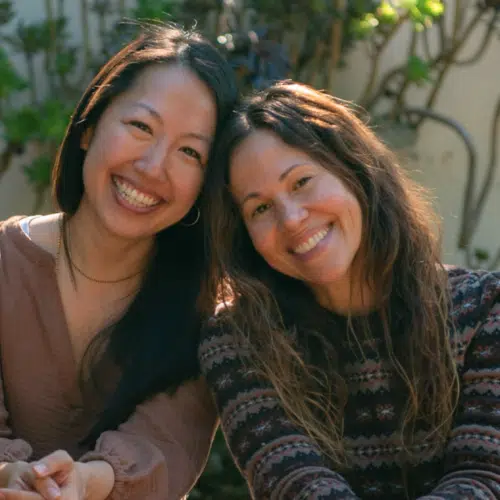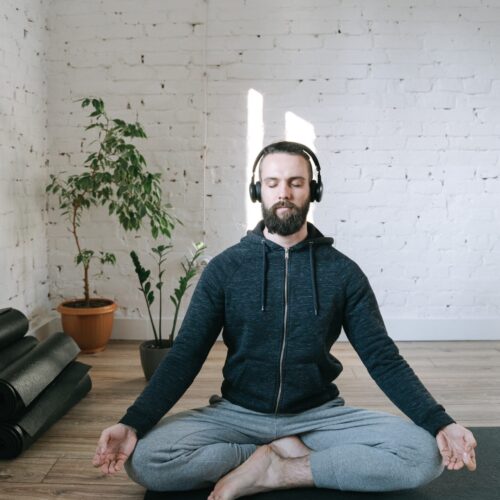Welcome to The Slow Newsletter, your weekly dose of dazzling, aha-moment-generating Vedic wisdom. The Slow is where we break down teachings on meditation and consciousness to inspire easy, abundant living—even in the most demanding times.
If you’d like to receive these insights directly in your inbox, click here.
💬 Quote of the Week

Ever notice how one word can change everything?
When we call something a “problem,” it’s like adding a layer of unnecessary angst—worry, finger-pointing, self-blame—and before you know it, the full circus of stress comes to town.
But what if, instead of labeling it a problem, we simply see it as a challenge? A bump in the road? Or, better yet… an invitation?
Changes in expectations are actually opportunities in crafty disguise. They offer us a gift—one where we get to show off our capability, adaptability, and creativity.
When we reframe problems like this, guess what happens? We don’t just “handle” the situation. We rise to meet it, and enjoy a wave of support from Nature in the process.

Receive free weekly wisdom notes and practical tips.
Subscribe Now📚 Knowledge Sesh: 10 Things I’ve Learned About Meditation in My 10 Years of Meditating
Happy Meditation Anniversary to MEEE! 🎉
I can hardly believe it’s been a full decade of meditating twice a day. Looking back at the Susan I was—a high-flying Wall Street exec battling a storm of stress, anxiety, and insomnia—it feels like I’m reflecting on a completely different person.
Life’s challenges haven’t disappeared…what has disappeared is the worry around the unknown. With my meditation practice, I navigate life with a baseline of calm and joy that wasn’t there before.

Here are 10 things I’ve learned about meditation in my 10 years of meditating:
- Never Regret a Meditation: No matter how busy the day is, there’s never been a time I regretted sitting down to meditate.
- Perfect Meditation Embraces Imperfection: The noisy, interrupted, or shorter meditations count just as much, if not more.
- I Am Not My Stress or Anxiety: These feelings are signals to take care of myself, not definitions of who I am.
- Stress is the Body’s Love Language: It’s an invitation to create balance and self-care.
- Let Go of the Need for Deep Experiences: Trying to hold on to deep meditations only pushes them away. Trust that good things will happen naturally.
- Celebrate Your Relationship with Meditation: Approach your practice with love and devotion, not just expectations.
- Meditation Settles the Chaos of the Mind: It clears the mental clutter and allows clarity and fearlessness to emerge.
- Don’t Overthink Meditation Time: In the time it takes to talk yourself out of meditating, you could have already completed a session.
- Rounding is a Game Changer: This practice enhances the benefits of meditation tenfold.
- Meditating You is the Best You: The version of you that meditates will always outperform the version that doesn’t—every single time.
If you’d like to learn more about how you can get started with a meditation practice, click here to book a talk with me. I’d be happy to share more!
💫 The Spin: ABC’s of Learning
When did it begin for you? When did the fear of messing up start to take root?
Was it during that soul-crushing 8th-grade English class? Or maybe freshman year chemistry with Mr. Orensky – the one who lured you to the lab with cookies, only to sucker-punch you with pop quizzes that made you ugly-cry in the bathroom?
For me, it started at the ripe-old-age of five. KINDERGARTEN.
Picture this: Little Susan, freshly arrived in Dallas, armed with nothing but a megawatt smile and zero English-speaking capabilities. Turns out, my new teachers weren’t too jazzed about my charades-only communication style. They wanted me to learn the ABCs.
So, there I was, banished to the ESL dungeon – a windowless closet that reeked of musty books. I’d probably now, in my mid-40s, wear that nostalgic scent like Santal 33. But back then? It was eau de torture.
My days were spent wrestling with a card machine, drilling basic English into my five-year-old brain. My teacher, Mrs. Blankenship, would pop in to make sure I was staying on task and getting through the curriculum.
“When go out?” I’d ask her, my eyes pleading.
“When you pass all the tests,” she replied (or at least, that’s what I understood with my limited English).
And just like that, the fear of failure took hold. Failing meant more time away from the other kids who spoke so easily. It meant eating lunch by myself. It meant being alone with those musty books.

So, I threw myself into learning, determined to avoid mistakes at all costs. I finally made it out in a month, but I’d internalized this idea that “no mistakes” was the only path to success.
Now, let’s fast-forward to some Vedic wisdom.
Veda explains that long-lasting learning doesn’t happen by fearing failure. It’s a process of embracing our mistakes.
Here’s how it really works:
- Learn the skill
- Practice the skill and make mistakes (it’s okay, really)
- Recognize where things went wrong (this is 🔑)
- Practice some more, make different mistakes
- Acknowledge the missteps
- Keep practicing
- Master the skill (but never stop learning) ☀️
So much better than the usual approaches we often see:
- Learn the skill
- Be so scared of making a mistake that you don’t dare to practice or put yourself “out there”
- Be frozen in your evolution 🥶
Or, this ol’ chestnut:
- Learn the skill
- Make the mistake
- Lack awareness or perspective to identify the mistake
- Make the (same) mistake—again, and again, and again.
- Also freeze in your evolution. 🥶
The key is being willing to make mistakes and grow from them. It sounds simple, but it’s powerful.

This is where Vedic Meditation comes in. It helped Susan of ten years ago release the stress and learned behaviors from those ESL dungeon days.
So, here’s my advice: Stay consistent with your practice. Keep your awareness open, and you’ll find yourself on a path to expanded happiness and greater fearlessness.
Remember, it’s okay to make mistakes. In fact, it’s how we grow. Your future self will thank you for embracing this mindset.






